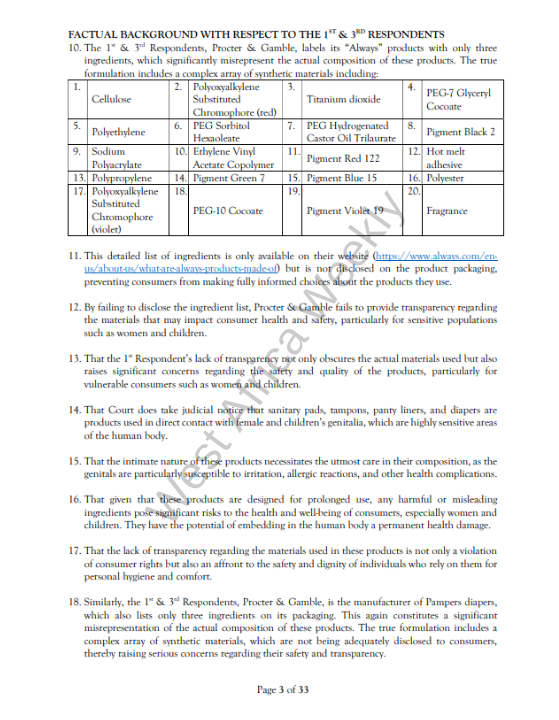2,884 Kenyans have petitioned against two U.S.-based companies, Procter & Gamble (makers of Always and Pampers) and Kimberly-Clark (producers of Kotex and Huggies), for selling toxic sanitary pads and diapers containing synthetic chemicals in the Kenyan market for over 30 years.
They seek KES 7.05 trillion ($54.5 billion) in damages, stating that the products cause health risks to consumers, especially women and children, and severe environmental harm.
According to the petition filed in the High Court of Kenya and seen by West Africa Weekly, the products are composed of synthetic materials such as polypropylene, polyethene, titanium dioxide, and other chemicals. These substances, according to the petitioners, cause allergic reactions and irritation when these products are used in direct contact with female and children’s genitalia, which are highly sensitive areas of the human body.

The petitioners, led by Joseph Mwai, Steve Muraguri, and the Law Society of Kenya, said that the companies targeted vulnerable groups, such as women, children, and low-income families, through aggressive marketing campaigns.
They further stated that the companies marketed the products as being “cotton-like” or made with natural materials, which they said is misleading and violates consumer rights under Kenyan law as the manufacturers failed to disclose accurate information on the products’ packaging, thus denying customers the right to make informed choices.
In addition to the health concerns, they also raised concerns about the environmental impact of the products, stating they are non-biodegradable and have generated 3.727 trillion kilogrammes of waste. They also accused the companies of environmental degradation, including deforestation, during production.
The damages sought include KES 3.194 trillion ($24.7 billion) for sanitary pads and KES 3.86 trillion ($29.8 billion) for diapers. According to the petitioners, the amounts reflect the damages caused to consumers over the past three decades.
Procter & Gamble and Kimberly-Clark have previously emphasised their commitment to quality, safety, and ethical practices. However, the petitioners said the companies have failed to uphold these standards, prioritising profit over consumer welfare and environmental responsibility.
The petitioners demanded that the court compel the companies to disclose all product ingredients on their packaging, provide clear warnings about potential health risks, and adopt sustainable practices, including the production of biodegradable products.
The case is a landmark moment for consumer rights and environmental justice in Kenya. It could set a precedent for holding multinational corporations accountable for their products’ impact on health and the environment.
Read More:









